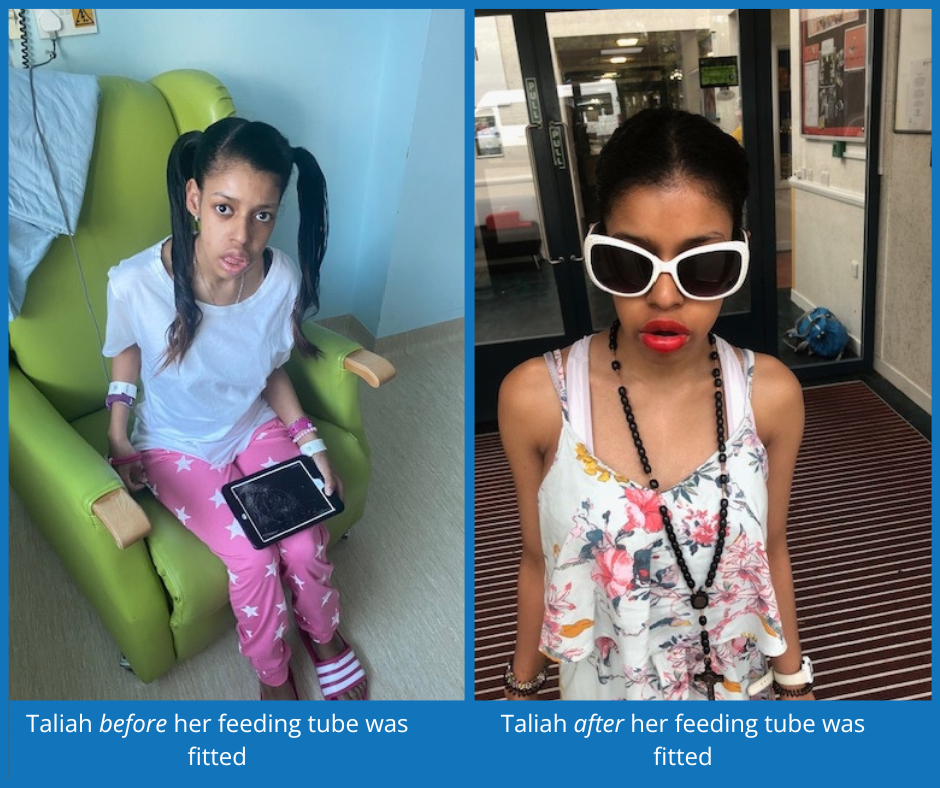This important research highlights one of the many challenges faced by children and adults living with Dravet Syndrome and their families on a daily basis. Our strategy is to create a better understanding of the realities of caring for people with Dravet Syndrome, and to empower families to access the support they need by providing an evidence base through studies like this.Galia Wilson, Chair of Trustees, Dravet Syndrome UK
Taliah’s story
Edwina Williams, mother of Taliah who lives with Dravet Syndrome, contributed to this research as her daughter had feeding problems for a number of years and then had a gastrostomy fitted. She said: “As a parent you always want to do the best for your child, but sometimes it is difficult to figure out what the best thing is. As time went on, Taliah’s feeding issues worsened, and I was watching my daughter wither away in front of my eyes. This is when I contacted her medical team to arrange for her to have a feeding tube fitted as I knew that we needed help. It has been a long journey, but I can honestly say that the feeding tube has been the absolute best thing for Taliah, and our family. She is no longer dehydrated, she no longer sleeps for most of the day as her body has the correct nutrients, her hair is glossy, and she is a chatterbox now too!”

About Gastrostomy
Gastrostomy is a surgical procedure for inserting a feeding tube through the abdomen wall and into the stomach. The feeding tube can be used to administer medications as well as food and fluids. People with a gastrostomy can still eat and drink normally if they wish and if it is safe for them to do so, but the tube ensures that they receive enough nutrition, hydration and medications.
About the research
The anonymous, cross-sectional survey regarding feeding difficulties and gastrostomy was developed by adult neurologists working with individuals with Dravet Syndrome, alongside representatives, and caregivers, from Dravet Syndrome UK (DSUK). The survey was shared through email and private Facebook group to DSUK-registered families, and open for responses between 7th and 28th January 2022. Survey questions were multiple choice, including Likert scale responses, with opportunities for open-ended responses. 124 families took part in the survey. The full research report can be accessed here.
Advice advice about feeding difficulties in Dravet Syndrome and what to do
In this short film Dr Lisa Clayton gives advice about what to do if the child or adult you care for with Dravet Syndrome is experiencing feeding problems.
